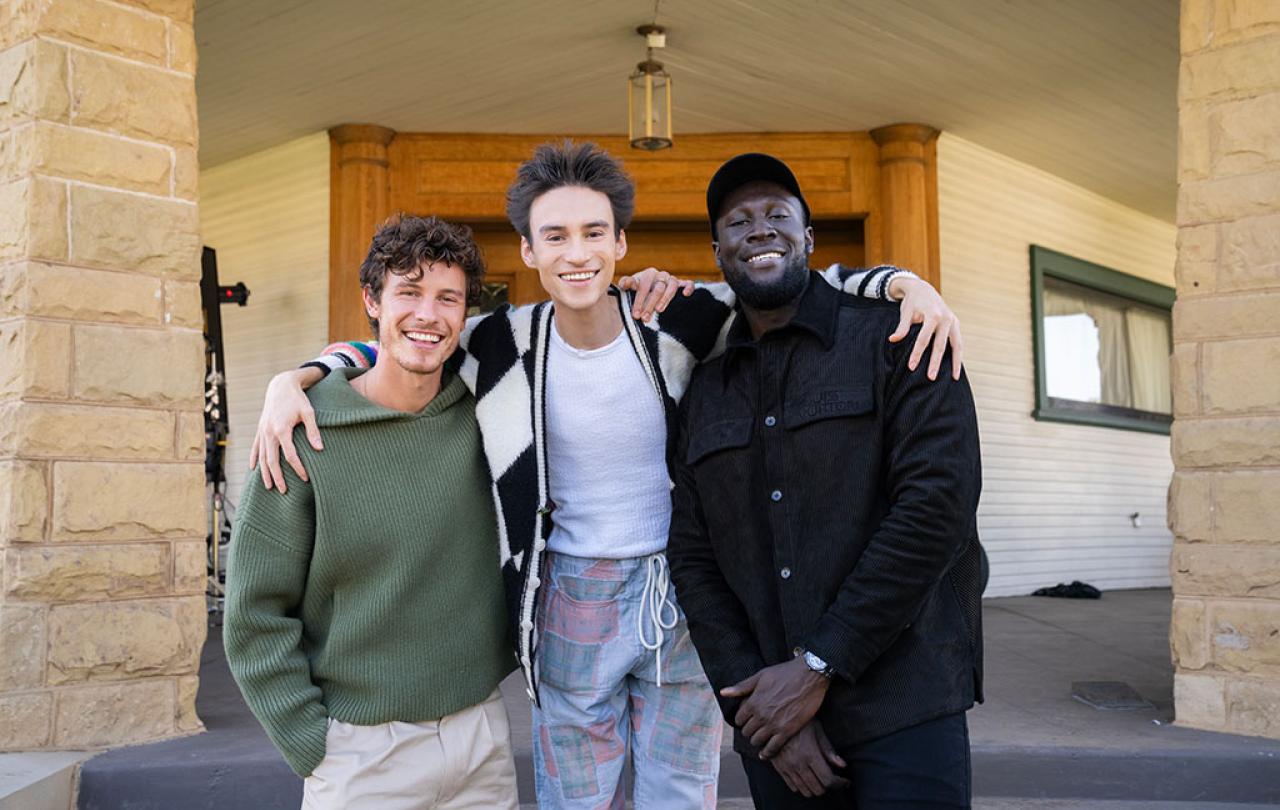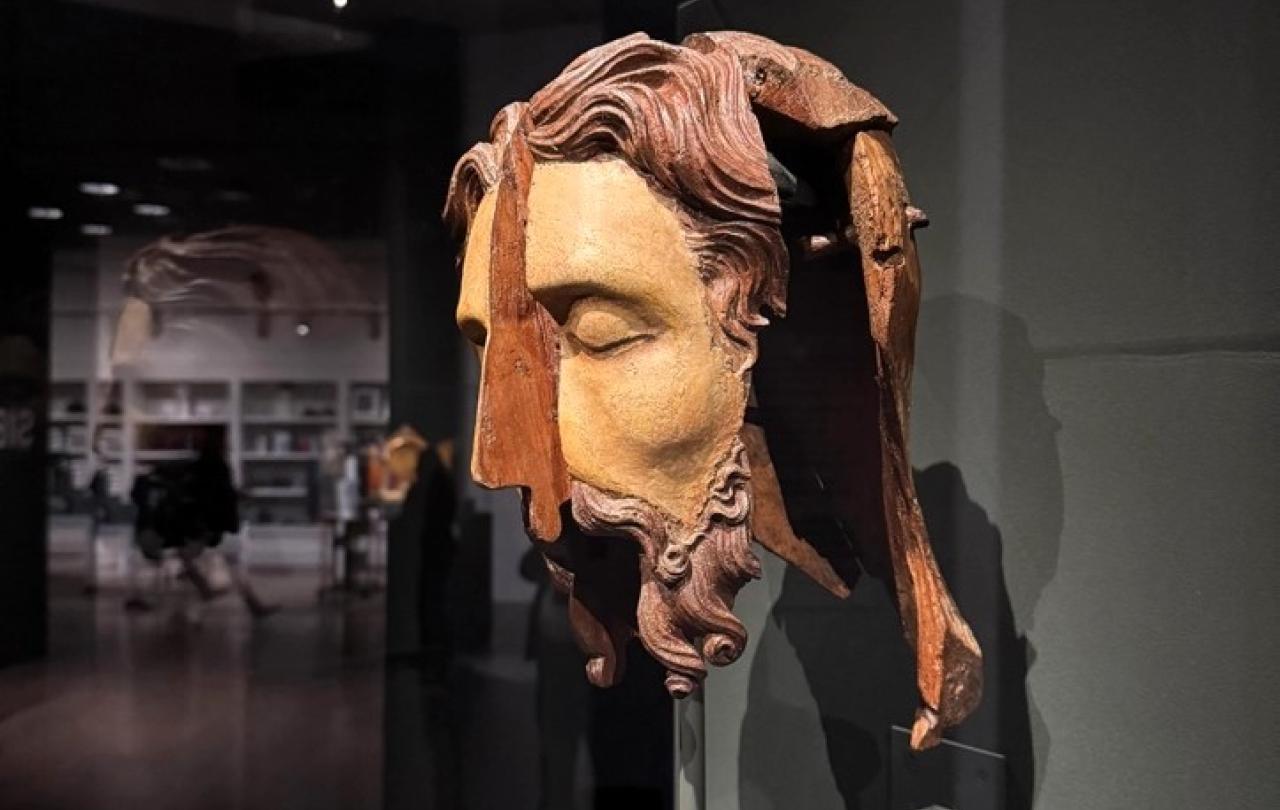
Anyone listening to BBC Radio 1 on Tuesday night at 6pm will have been treated to the very first play of Jacob Collier’s highly anticipated new single. I love those moments. I love that in our hyper-individualised society, the radio can still invite us into these communal occurrences, occasions that hide amongst the chaos and mundanity of the Tuesday evening commute.
And Tuesday night’s occasion was as follows: we were cordially invited to be the recipients of Witness Me as it rang out over the airwaves, released into the wild, sent out in a thousand different directions.
I was then, and still am, utterly intrigued by this song.
After the initial listen, I decided that there has to be more to it than is immediately apparent. To borrow, and then adjust, a familiar phrase - I think there are ‘heard and unheard’ elements to be grappled with when it comes to this song. And I’ve spent this morning grappling with them on behalf of us all.
Firstly – Jacob Collier, the UK’s beloved musical maestro, has crafted this song alongside grime-artist-extraordinaire Stormzy, pop-sensation Shawn Mendes and Gospel-titan Kirk Franklin. Whichever way you look at it, this is an odd grouping. As Jacob himself said, ‘this particular combination is not one that I saw coming… but it feels so right that it’s happened.’ Aside from Jacob (for whom this song is pretty in-keeping with his musical style), it really does feel as if each of the four artists involved have served something that sits beyond them as individual artists. Offering this song up, not because it wholly belongs with their individual bodies of work, but because it serves each and every listener. Jacob, speaking of this song, put it nice and simply: ‘this song is special and needs to be in the world’.
These four artists don’t need this song, I sense that their thinking is that we need this song.
The first two verses are offered to us by Jacob Collier and Shawn Mendes respectively, while the third is delivered by Stormzy. These verses ground the song, which has such an uncontainable feel to it, in time and place. Where Shawn sings of business, familial trauma and alcohol as a coping mechanism, Stormzy speaks of murder, loss and forgiveness. The chorus, on the other hand, is simple, vague and a little abstract. It goes like this,
I'm with you
I'm with you here
You're the light I need
In the dark I see
I'm with you
I'm with you here
You are all I see
You witness me
Every line of this chorus is carried upon the waves of Kirk Franklin’s Gospel arrangement. Speaking of the Gospel undercurrent of the song, Jacob noted how it ‘was the fundamental, that is what breathed the most life into this song’. And while the verses are interesting, it is the chorus that I find myself grappling with. Both audibly and figuratively, the chorus lifts above the verses.
Jacob’s working with some pretty ancient material here, he’s drawing on themes that have been thought-through and lived-out for millennia, he’s tuning into a heart-cry that’s as old as time itself.
Who are those words above directed to? Who are they flowing from? What is it about those words that have the power to hold this whole song together? What is the unheard behind the heard here?
Let’s begin by taking these lyrics at face value, shall we?
On the surface, these lyrics are a celebration of, as well as a calling for, radical empathy. In that way, this song is an imaginative endeavour; it is dreaming a certain reality into being. In Jacob’s own words,
‘In a time where there are countless divisive forces around the world, my hope is that this song can act as a reminder of the power people hold to come together and really see each other, carry each other, and bear witness to life in all its colours.’
In this sense, it has a touch of James’ retro classic ‘Sit Down’ about it. So, perhaps it was time for another anthem of empathy to roll around. We were made for community, for belonging and for interdependence; Jacob has always made this a primary feature of his work. And I’m grateful to him for that. I’m grateful to anyone who encourages us to stop pretending that we don’t need each other.
So, there’s that. But there’s more to it, I’m sure of it.
I can’t help but feel as though there’s a profound piece of theology trojan-horsing in this song. I don’t think I’m wishing it into existence; there are hints all over the place. Firstly, there’s the hearable omnipresence of the Gospel choir. Secondly, there’s Stormzy’s verse, which is an outright prayer, as he asks God to:
Have mercy on 'em, Lord
I know You're with them in the storm even though it's hard to see…Have mercy on 'em, and be with 'em
And if grace doesn't cut it, then Your mercy will suffice
In this cold, dark world, we just need a little light
So, I’m not totally over-thinking this.
In the light of these details and with the knowledge that each of the featured artists sit somewhere along the spectrum of Christianity, I’m becoming increasingly convinced that the chorus, those lyrics that hold the song together, are a prayer too. As well as a celebration of the presence of community, I think it may be an intimate acknowledgement of the presence of God - the only one who truly ‘witnesses our lives in all its colours’. You may think me crazy, but I think that Jacob and team may have just released a little theology into the world.
God being ‘light in the darkness’, the one who ‘sees us’, the one who’s ‘with us’ – these are biblical concepts. Jacob’s working with some pretty ancient material here, he’s drawing on themes that have been thought-through and lived-out for millennia, he’s tuning into a heart-cry that’s as old as time itself. This does not dimmish the radical call for empathy that has been so praised in this song. On the contrary, the two concepts are utterly dependent on one another. Seen as this whole song could have been drawn out of a biblical book, I shall enlist one to explain further:
‘dear friends, since God so loved us, we also ought to love one another. No one has ever seen God; but if we love one another, God lives in us and his love is made complete in us.’
I mean, come on - that could have been the fourth verse to this song.
This new single is called ‘Witness Me’ – And yes, I witness you Jacob. Last night, on my commute home, I witnessed you put language to our deepest desire. I witnessed you sneak a prayer onto BBC Radio 1.





